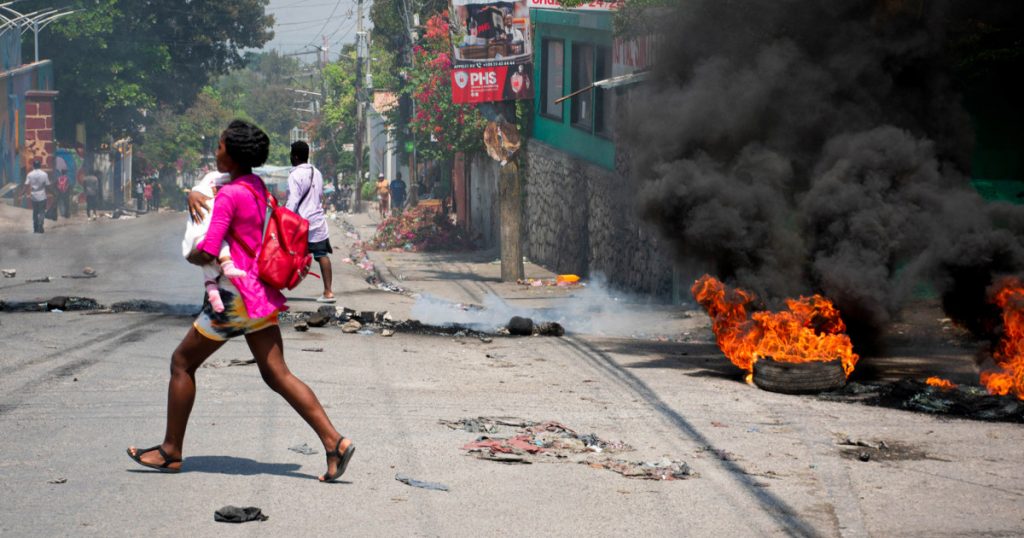Fresh turmoil involving a transitional presidential council in Haiti has led to a series of meetings with Caribbean leaders and officials from the U.S., Canada, and France. The council has not been sworn in yet due to concerns about the security of its members and other issues. Gangs have been causing chaos in Haiti’s capital by launching attacks, burning police stations, storming prisons, and releasing inmates. As a result, more than 33,000 people have fled Port-au-Prince, and over 340 U.S. citizens have been evacuated.
The delay in establishing the transitional council has raised concerns about the ongoing violence and instability in Haiti. A member representing the EDE/RED political party resigned, citing political attacks and death threats. While the council quickly replaced her, they have yet to be sworn in. The Montana Accord, a group of civil society leaders, expressed support for the resigned member and called for an end to the violence and fear-based political maneuvers. The council is scheduled to meet with officials from Caricom to determine their next steps.
Officials in Haiti are hoping that once the council selects a new leader and appoints a council of ministers, gang violence will subside. Prime Minister Ariel Henry has indicated that he will resign once the council is established. While gang violence has slightly decreased in recent days, new attacks continue to occur. Gunmen set fire to a mechanic shop in downtown Port-au-Prince, leaving many people devastated and without livelihoods. The delayed establishment of new leadership in Haiti is concerning to experts who fear the consolidation of power by criminal elements.
Romain Le Cour, with the Global Initiative Against Transnational Organized Crime, observed that gangs in Haiti appear to be pursuing a strategy of maximum pressure through a combination of attacks and periods of calm. He suggested that this strategy may be influenced by political figures who are still connected to the gangs. Le Cour, along with others, expressed worry about the consequences of the ongoing leadership vacuum in Haiti. The inability to make the presidential transitional council operational is seen as a reflection of the conflicts within Haiti’s political landscape, further empowering armed groups and criminal influencers.
The situation in Haiti continues to be volatile as the transitional council struggles to be established amid ongoing gang violence and insecurity. With thousands fleeing the capital and U.S. citizens being evacuated, the need for stable leadership is urgent. The delay in forming the council has sparked concerns about the growing power of armed groups and the influence of criminal elements in Haitian politics. The upcoming meetings between council members and Caricom officials will be crucial in determining the next steps towards selecting new leadership and restoring order in the country.


